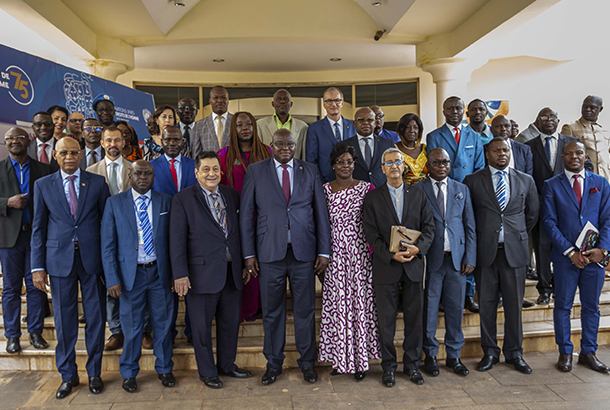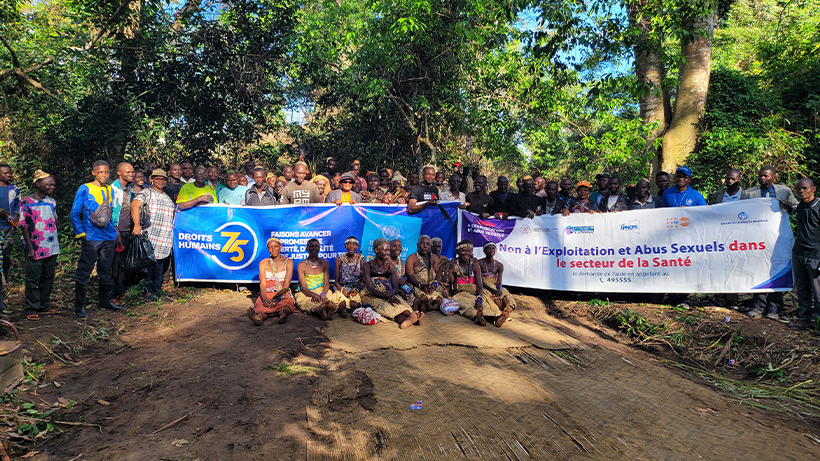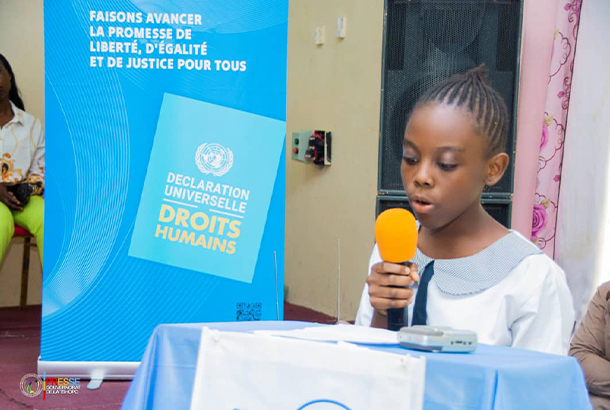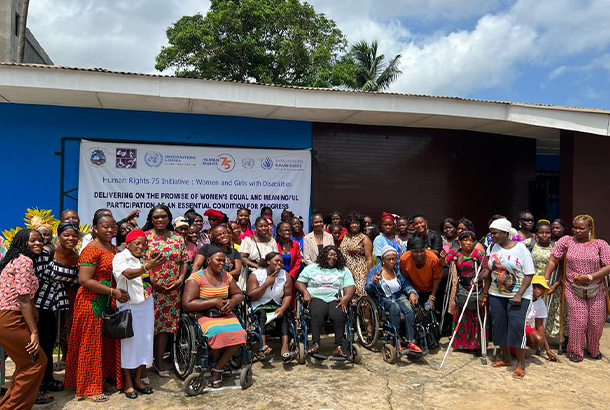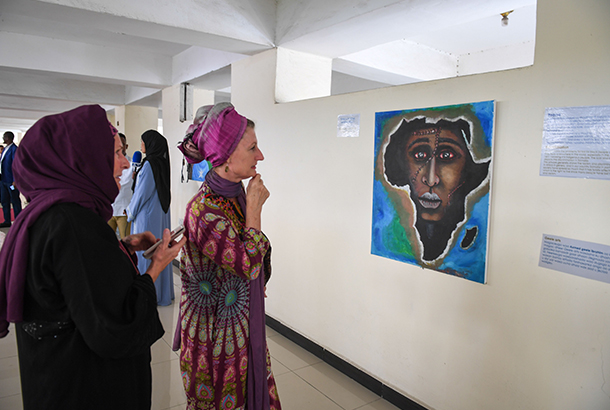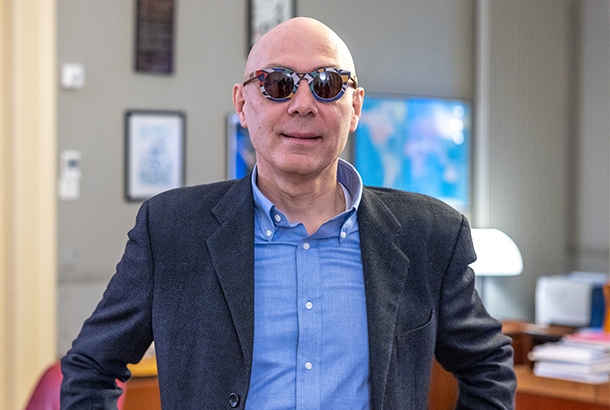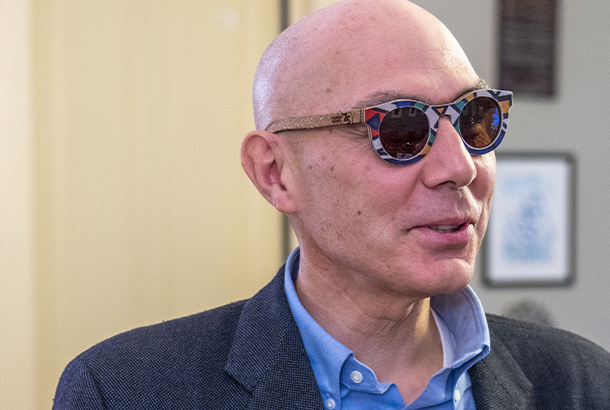HR75 Wrap-up: Africa
Human Rights 75 Initiative
Central African Republic
Implementing human rights in the Central African Republic
MINUSCA's Human Rights Division organized a high-level dialogue in Bangui to discuss the National Human Rights Policy and promote action for human rights in commemoration of the 75th anniversary of the Universal Declaration of Human Rights.
The event, co-organized with the Ministry of Justice, Human Rights and Good Governance, brought together 196 participants from various institutions and organizations and focused on the challenges and issues involved in effectively implementing human rights in the Central African Republic (CAR). The feedback and comments received during the dialogue were used to enhance the draft policy and led to the adoption of the Bangui Declaration during the celebration of the Universal Declaration of Human Rights’ 75th anniversary. This dialogue aimed to promote a deeper understanding of human rights and foster collaboration among key stakeholders in CAR towards the advancement of human rights in the country.
Democratic Republic of Congo
Promoting the rights of Indigenous Peoples
Reading out for human rights
Liberia
Women with disabilities must have a seat at the table
UN Human Rights in Liberia collaborated with the National Commission on Disabilities (NCD) and the National Union of Organizations for the Disabled (NUOD) to hold a dialogue for women with disabilities on their participation in public and political life in early July. The UN Resident Coordinator, Ministry of Justice, and Ministry of Labor participated in the event, which was attended by women with disabilities.
“The Universal Declaration of Human Rights inspired the equal and meaningful participation of women in all their diversity,” said Pasipau Chirwa, UN Human Rights Deputy Representative. “Therefore, to deliver on its promise, there is decisive action we can take. We must challenge the deeply engrained social norms and traditions holding women’s participation back and increase women’s representation at the political table through quotas. And zero tolerance for harassment and violence against women and girls in public, private and political life.”
Somalia
First-ever human rights art competition in Mogadishu
The power of art to inspire and transcend came under the spotlight today at Somalia’s first-ever human rights art competition, aimed at raising awareness about human rights and fostering dialogue and debate on issues of importance to Somalis.
“I am very delighted to witness this exhibition at the National Museum where 20 artists have been selected and to witness their creativity – it’s a privilege for us to be here and encourage them,” said Ahmed Osman Ibrahim, State Minister from Somalia’s Ministry for Education, Culture and Higher Education (MoECHE).
“I think that the exhibition that we see today is extremely powerful. I think we have all been touched by every piece that we have seen… and it is a very special gift that the National Museum is giving to Somali citizens – that it is possible to use this gorgeous space, to share, to document the history of Somalia and the rich culture, but also issues of justice, equality and hopes and dreams,” said Kirsten Young, Chief of the UN Assistance Mission in Somalia’s (UNSOM) Human Rights and Protection Group (shown above).
South Africa
Vision of hope: HR75 Sunglasses
In commemoration of the 75th anniversary of the Universal Declaration of Human Rights, the Regional Office for Southern Africa has launched Human Rights 75 Ubuntu Vision ethical sunglasses, which are all handmade in South Africa from sustainable materials.
Ubuntu is a concept meaning humanity toward others and resonates throughout the southern Africa region and emulates the notion of human rights. Ubuntu Vision sunglasses were conceptualized during a workshop on OHCHR’s Narrative Change Toolbox and the global #StandUp4Migrants campaign, convened by OHCHR Regional Office for Southern Africa and the OHCHR Migration Unit in October 2022. Participants from civil society who had undergone training on narrative change in the context of migration (hope-based narratives) were asked to develop their own hope-based narrative for the Southern African context. The workshops were done as part of a broader joint programme on social cohesion in South Africa funded by the Migration Multi-Partner Trust Fund.
